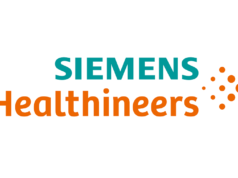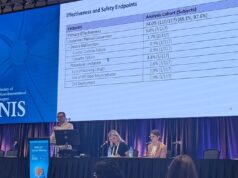 The SPINNERS study, which has just been announced by Siemens Healthineers, will evaluate the diagnostic accuracy of non-contrast flat-detector computed tomography (CT) compared to multi-slice CT for detecting intracranial haemorrhage in stroke patients.
The SPINNERS study, which has just been announced by Siemens Healthineers, will evaluate the diagnostic accuracy of non-contrast flat-detector computed tomography (CT) compared to multi-slice CT for detecting intracranial haemorrhage in stroke patients.
The recently registered study is an investigator-initiated clinical trial performed at multiple sites in Switzerland, Austria, and the USA. If the outcome of the study shows non-inferiority of flat-detector CT, this will support the one-stop management (or ‘angio-only’) approach, which may improve diagnosis, door-to-needle time and, subsequently, the outcome for acute ischaemic stroke patients, according to the company.
In this workflow, both imaging for the diagnosis of a large vessel occlusion (LVO) and the subsequent thrombectomy procedure are carried out with the help of flat-detector CT inside the angiography room.
One of the biggest hurdles to a large-scale implementation of the one-stop management approach to date in stroke care has been the lack of clinical evidence to prove a reliable distinction between ischaemic and haemorrhagic stroke by means of flat-detector CT, a Siemens Healthineers press release states. Artifacts and decreased image quality near the base of the skull have limited its use to that of a triage tool in previous generations of angiography systems.
With the SPINNERS study, researchers plan to investigate whether flat-detector CT imaging with syngo DynaCT Sine Spin—a novel imaging protocol available on the Artis icono angiography system—has a non-inferior diagnostic accuracy to multi-detector CT in detecting intracranial bleeding.
This multicentre, prospective trial has been initiated by principal investigators Marios Psychogios (University Hospital Basel, Basel, Switzerland) and Adam Arthur (University of Tennessee Health Sciences Center, Memphis, USA). It will be conducted at approximately 12 clinical sites in Europe and North America, and is designed to include 252 patients. The SPINNERS study has been funded by Siemens Healthineers.









